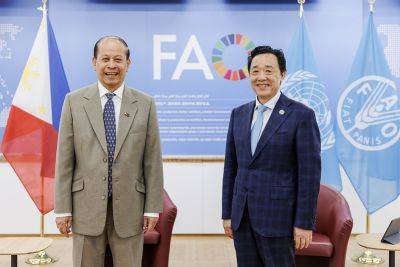FAO widens scope of innovative water monitoring device
Rome—One of the most innovative tools in water management and governance is going global.
WaPOR, as it is widely known, is expanding its geospatially-driven coverage to the whole world, following six years of successful use in Africa and the Near East. The new and improved version was launched last week at the Food and Agriculture Organization of the United Nations (FAO) at the 2nd Rome Water Dialogue and on the sidelines of the Global Symposium on Soils and Water.
Water Productivity through Open access of Remotely sensed derived data, the portal’s full name, offers users near real-time satellite data to track actual water consumption in cropping fields, irrigation water applications and the economic value-addition that an extra drop can offer, doing so with seasonal nuance and high-spatial resolution.
It can help countries, especially those grappling with water scarcity, monitor water productivity and identify productivity gaps. Irrigated agriculture accounts for 70 percent of global water withdrawals, so making every drop count is increasingly imperative.
“WaPOR can make important evidence-based contributions to bolstering the prospects for optimization and more reliable agricultural yields,” said Lifeng LI, drector of the FAO Land and Water Division.
The new version, tapping a wider array of satellite inputs and adapted to cutting-edge sensor technologies, increases the granularity of assessments, whose resolution can now bore down to field-scale applications where a pixel represents 20 meters of land surface, which can be used by farmers to decide when to irrigate and how much water is needed for their crops.
“We will get better data, allowing us to go beyond general numbers for entire countries,” said Jippe Hoogeveen, chief technical advisor of the WaPOR program. “This will allow governments to integrate the knowledge into more holistic, integrated, and targeted rural development plans, as well as contributing to better tracking of SDG6 objectives. FAO News
While the expanded WaPOR data are available to all FAO member countries and the public at large, Colombia and Pakistan are the first countries outside the original Africa and Near East zone to sign up







